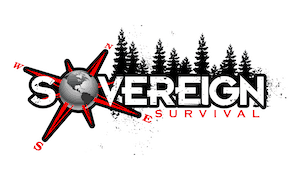Modern estimates show that there are as many as 3 million preppers in the United States alone has more people than ever are noticing just how unstable the world can be.
Everyone has their own reasons for prepping and this will affect how they approach this ongoing process, but there are some common mistakes that most beginning preppers tend to make.
For those that are ready to ensure the safety of their family and loved ones in the event of a disaster, here are 11 important tips to keep in mind when setting off on this journey.
1. Start Living Below Your Means
The start of this process is all about taking a hard look at one’s life and figuring out what is necessary and what can be left by the wayside. Beginning preppers should do everything in their power to not just live within their means, but to start living below their means.
Whether it is putting off a new luxury car or finishing paying off debt, no one wants to begin prepping with huge monthly bills and ongoing debt. Even something as simple as cutting back on eating out or taking a few movie channels off the cable bill is a great place to start.
2. Remember Those with Special Needs
If you have begun prepping you most likely have at least a handful of family members and close friends that must be taken into consideration. In addition to the basics such as food, water, and shelter, it is also important to begin planning for any special needs and medical considerations.
Some may need a large supply of insulin shots or other medication while others need to stock up on some extra pairs of glasses or contacts.
3. Stay Healthy
There is nothing as important to prepping as ensuring that you and your family are as healthy as possible. When a disaster occurs there is simply no way to plan for exactly what will unfold, but a healthy and in-shape individual is going to be at a distinct advantage.
Healthy people are more likely to survive extreme weather changes or even fend off a common cold or flu that can turn deadly when there is no medical infrastructure.
4. Make Plans for Work and School
In an ideal situation, a family is going to be together within a few steps of their essential gear when a catastrophe does take place, but the chances of this are somewhat slim.
Couples and families with children need to consider their options when they are at school, at work, or even across town getting groceries. At the very least, this should include a place to meet and a timeframe for meeting no matter everyone’s location.
Learn more about talking to your spouse about prepping here.
5. Have Access to Important Documents
Every family member should have ready access to important documents including passports, drivers licenses, marriage certificates, and ownership papers for one’s property and vehicles. The physical papers should ideally be kept in a waterproof bag inside of a water-resistant safe with a combination that immediate family members know.
It is also a good idea to keep a few flash drives around with all of this information plus some digital survival guides.
6. Determine the Most Likely Natural Disasters in Your Area
There is no single style of prepping that is right for every family in every location, and this means that some time must be taken to personalize a plan according to one’s unique needs.
A global food shortage or a severe drop in the stock market make affect the entire world, but families should also take a look at localized disasters such as flooding, mudslides, earthquakes, or wildfires that are likely to occur near their home or shelter.
7. Plan for Entertainment
Having some sort of plan for entertainment is nearly as important as any other step in this process. Many families will cover the essentials of survival, but this could be a major mistake if a long-term disaster takes place.
One major component of survival is optimism, and this is going to require a positive mindset. There are few ways better to keep one’s spirit up than to have at least some form of entertainment or way to pass the time.
8. Become a Good Neighbor
Immediate family members are always going to come first, but what happens when you need to rely on your neighbor for something after a disaster?
Related: 7 Smart Ideas My Redneck Neighbor Taught Me
The most logical step is to prepare for every eventuality, but no matter how well one plans, a friendly, loyal, and helpful neighbor could be invaluable. Staying on good terms with a neighbor and maybe even getting them into the prepping lifestyle can go a long way.
9. Always Compare Prices
One of the biggest issues for most preppers comes down to the overall costs. Bunkers, defensive gear, food, and other supplies can quickly move into the range of millions, but this is only one extreme end of the spectrum.
Taking the time to compare prices is a great way to keep expenses as low as possible. Instead of making all of the purchases at once, preppers should keep a running list of goods that they need and then pick up the extras as they go on sale.
10. Test Everything Yourself
Prepping is about much more than reading a survival manual or picking up some tips from old preppers. A true survivalist is going to thoroughly test every single part of their plan and every single piece of equipment before the big day happens.
Some of the survival skills that may be required after a catastrophe will take some time and practice in order to get right amidst chaos.
11. Continue Taking Baby Steps
A final tip for new preppers is to remember that this is an ongoing process and it will often take baby steps as well as some trial-and-error.
Once the basics of food, hydration, self-defense, and shelter have been collected, many of the other items can be picked up over time. Attempting to tackle this project in a single go will often lead to frustration, and frustration will result in mistakes.
Developing a survivalist mindset is the most important part of preparing for any disaster or chaotic mishap. These few tips will help all new preppers on their path towards not only surviving a worldwide event but to thrive when any of these catastrophes take place in the coming years.






